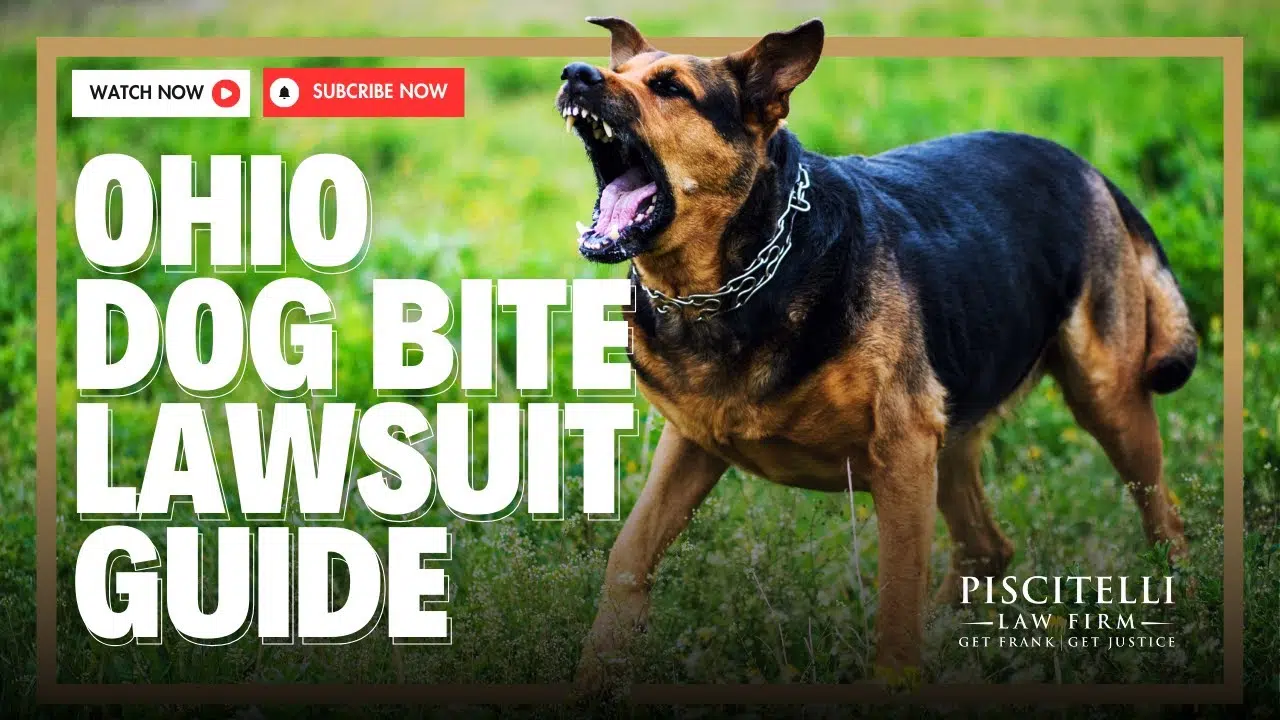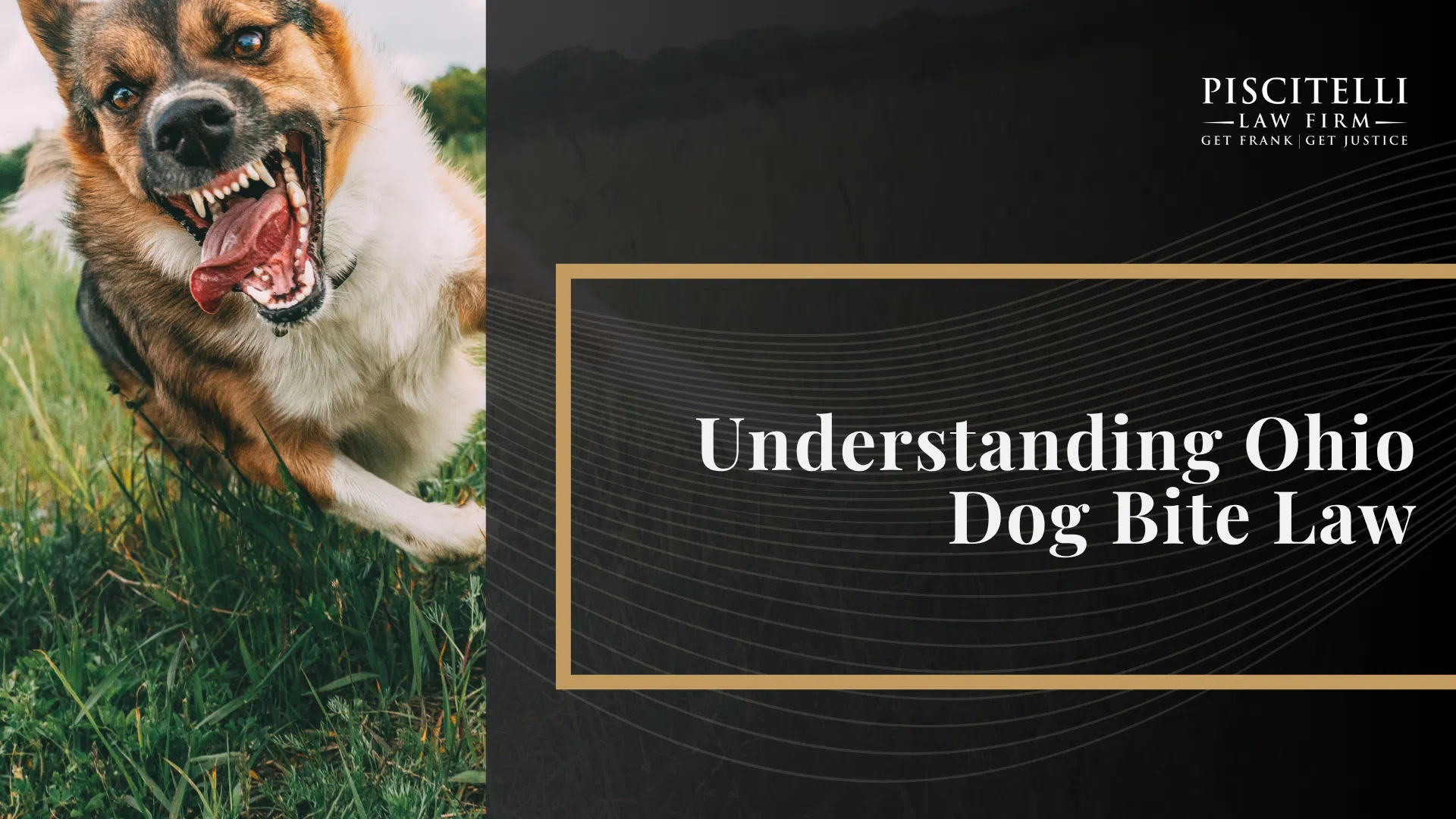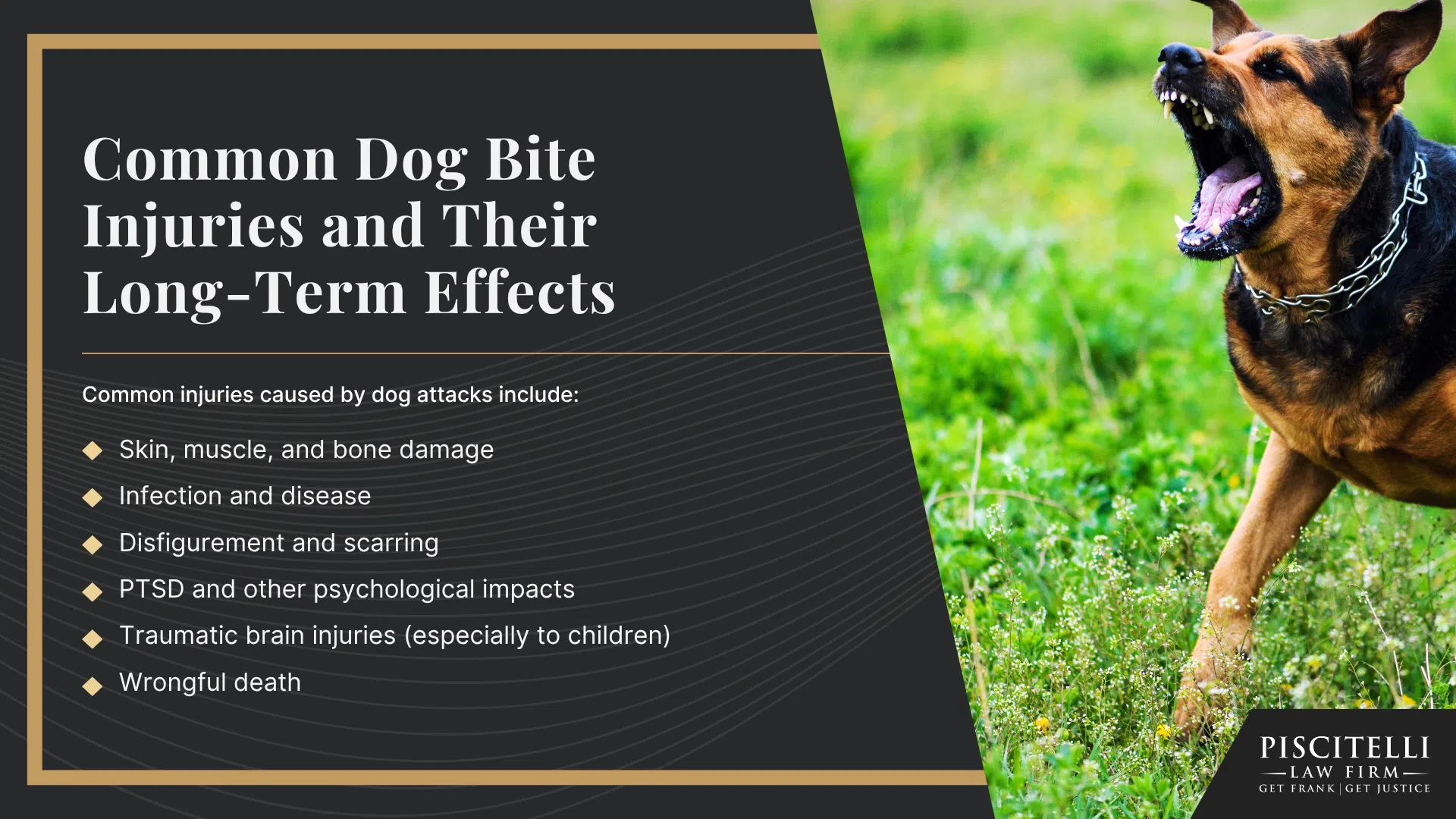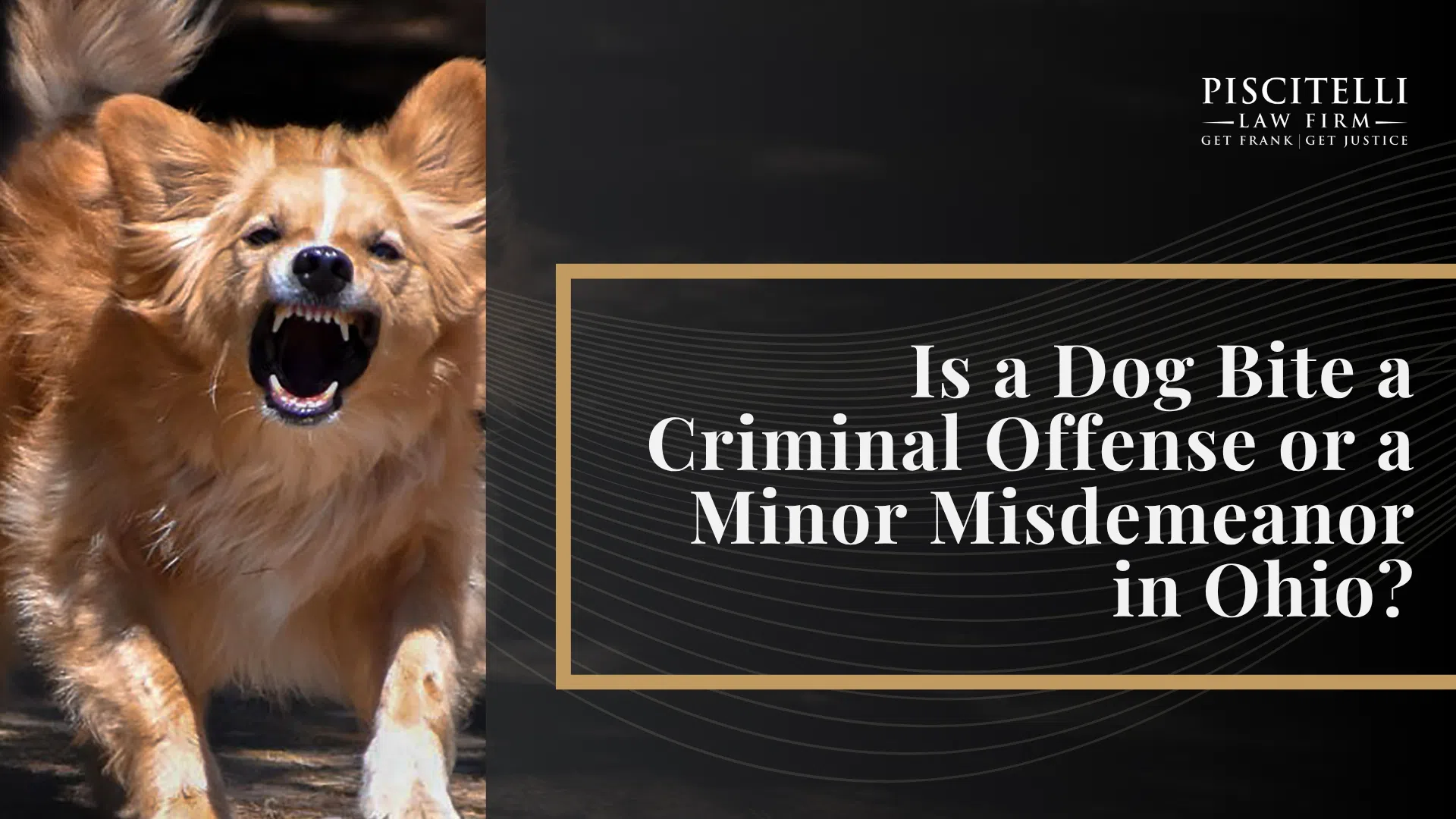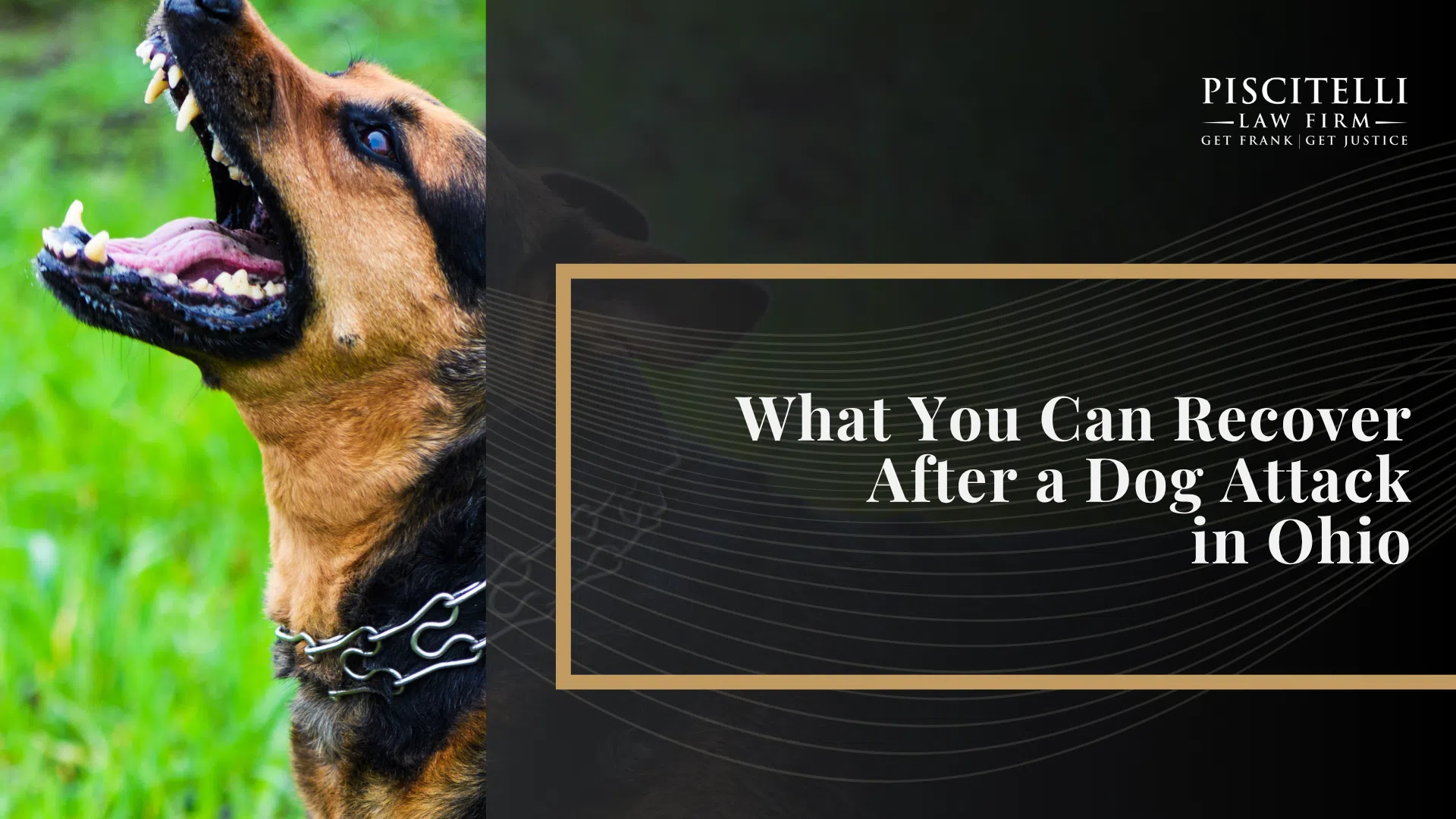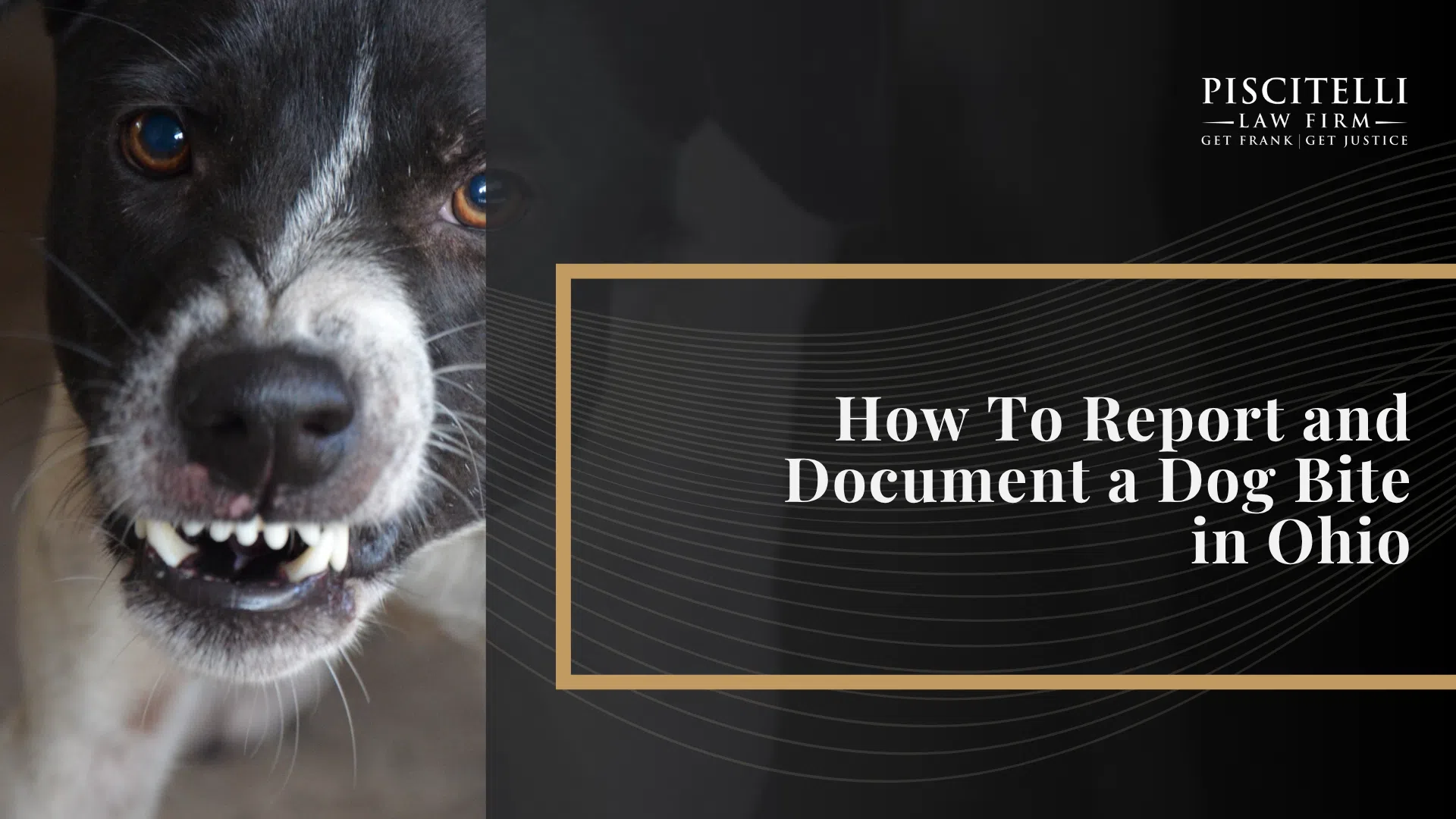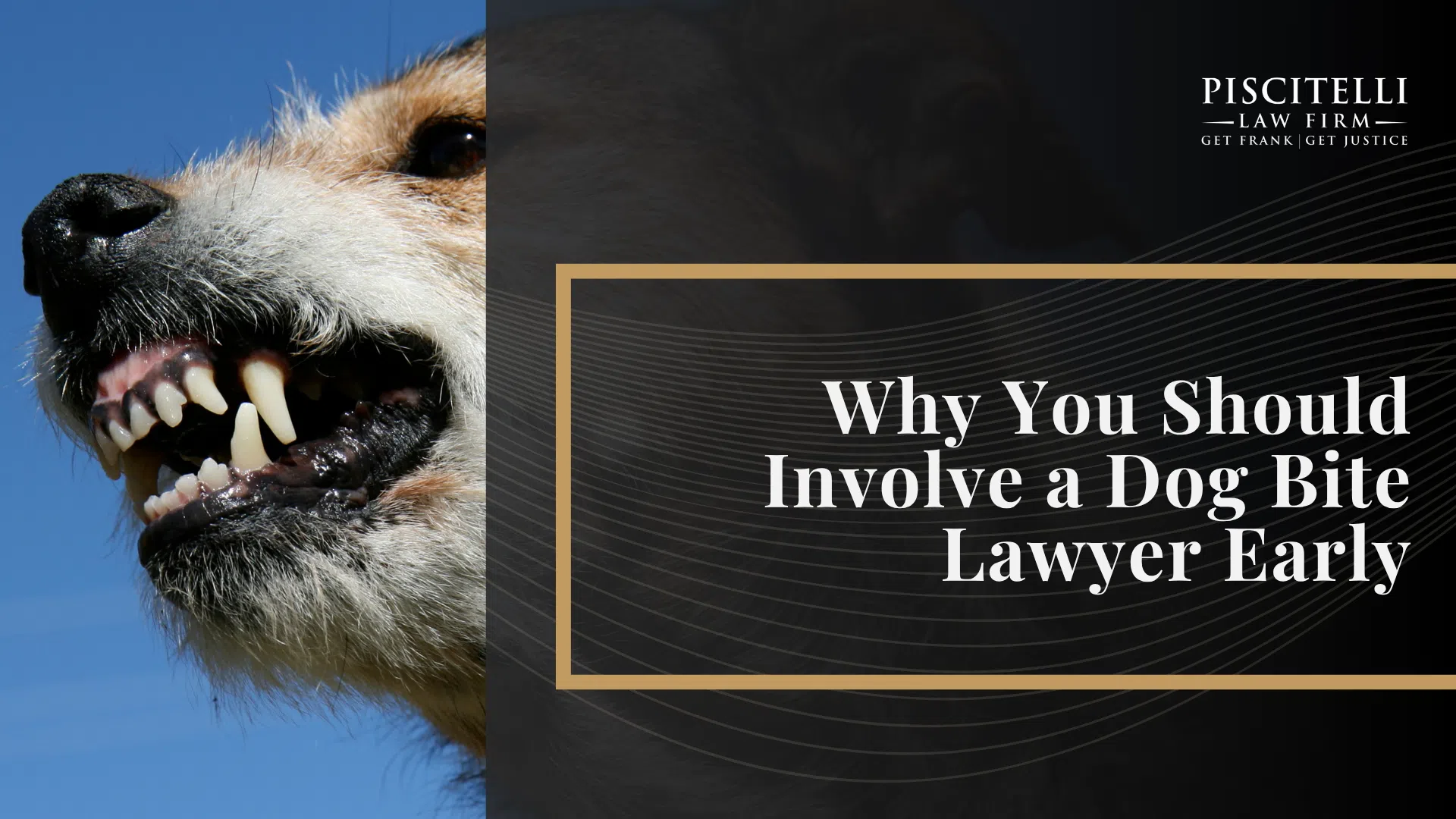Before you even consider legal action, know that your health and safety should come first.
Dog bites can lead to infections, nerve damage, and other serious complications that require urgent medical care.
Getting treated right away also helps create a clear record of the injuries inflicted in the incident.
Once your condition is stable, it’s important to report the bite and make sure the dog is identified and under control.
These early steps can protect both your well-being and your ability to pursue compensation later.
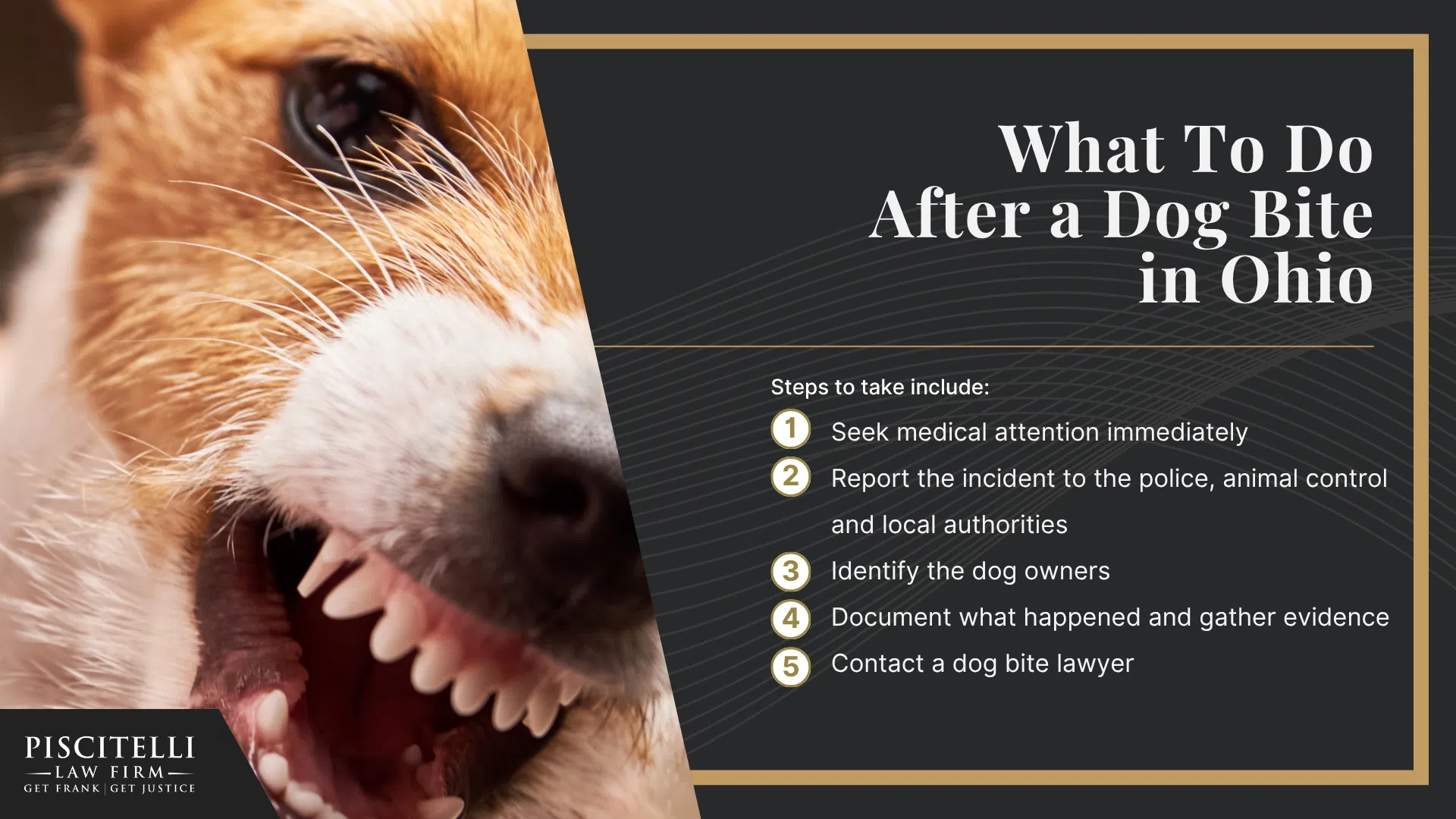
Steps to take include:
- Seek medical attention immediately
- Report the incident to the police, animal control and local authorities
- Identify the dog owners
- Document what happened and gather evidence
- Contact a dog bite lawyer
Get Medical Care Without Delay
Bite wounds can lead to infection, especially rabies and tetanus.
Dog bites can also result in local damage to nerves, muscles, or bones.
To prevent further damage and infection, see a medical professional as soon as you can — preferably on the same day as your dog bite.
Prompt care can also reduce the risk of permanent scarring or complications.
Medical records from this visit will help link the injuries to the dog bite, which is crucial if you pursue a legal claim.
If the wound is deep, uncontrolled bleeding, or near a sensitive area like the face or hands, emergency care is especially important.
Even if the injury seems minor, internal damage or infection can develop over time and should not be ignored.
Typical treatments for dog bite injuries may include:
- Wound cleaning and disinfection
- Rabies vaccinations or tetanus shots
- Antibiotics to prevent or treat infection
- Stitches or wound closure for deep cuts
- Plastic surgery for cosmetic or reconstructive purposes
- Pain medication and anti-inflammatory drugs
- Physical therapy for damage to nerves or muscles
Report the Incident to Local Authorities
Reporting a dog bite is a critical step for both public safety and legal documentation.
Local authorities will begin an investigation, determine whether the dog has a history of aggression, and assess whether it poses a continued threat.
These reports also serve as vital evidence if the injured person chooses to pursue a legal claim.
In Ohio, several agencies may be involved depending on where the incident occurred.
Agencies you may need to contact include:
- Local police department – for immediate response and documentation of the incident
- County animal control office – to investigate the dog’s history and quarantine the animal if necessary
- County health department – especially if there’s a risk of rabies or other public health concerns
- Ohio Department of Agriculture – if the incident involves a licensed breeder, kennel, or rescue organization
- Local dog warden – for enforcement of leash laws, dangerous dog designations, and other animal control regulations
Identify the Dog and Its Owner
Identifying the dog and its owner is crucial after a bite, especially when building a case for the owner’s liability.
Knowing where the dog lives and who had physical control over it at the time of the attack helps establish responsibility.
If the same dog has shown similar behavior in the past, it may strengthen the injured party’s claim under Ohio law.
Whether the dog belongs to a neighbor or a visiting family member, proper identification ensures that legal accountability can be pursued.
Start Documenting What Happened and Gather Evidence
After a dog bite, documenting everything thoroughly can make a major difference in your ability to seek compensation.
The more evidence you have of the dog’s behavior and the victim’s injuries, the stronger your claim will be.
Photos and videos taken shortly after the incident can help disprove the so-called innocence of a dog with a history of aggression.
Witness statements can also back up your account and support your version of what happened.
Evidence to gather includes:
- Photos and videos of the victim’s injuries
- Photos of the dog, location, and anything at the scene
- Witness statements from anyone who saw the attack or knows the dog’s behavior
- Medical records and bills
- Notes about the dog’s behavior before, during, and after the bite
- Any prior complaints or records involving the same dog or dog owners
Contact an Experienced Ohio Dog Bite Lawyer
Contacting an experienced Ohio dog bite lawyer as soon as possible can help you protect your rights and begin building a strong claim.
These cases often involve complex issues related to the dog’s past behavior, the defendant’s knowledge of that behavior, and what legal duties the defendant owed to others.
In some cases, victims may be able to recover punitive damages if the dog owner acted with extreme negligence or willful disregard for public safety.
An attorney will investigate whether the dog had shown similar behavior in the past and whether the owner failed to exercise proper physical control.
Legal representation also helps ensure that injured victims aren’t taken advantage of by insurance companies or pressured into unfair settlements.
Your lawyer can handle communications, gather evidence, and pursue maximum compensation for your injuries and losses.

